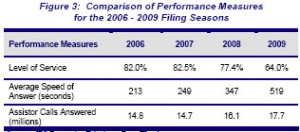IRS Dithers while Prisoners File Phony Tax Returns, Collect Millions in Refunds
Washington Examiner: “The number of prisoners who file false tax returns with the Internal Revenue Service has more than doubled in the last five years, according to a new Treasury Department report, and the amount of money the IRS has mistakenly refunded to those prisoners has nearly tripled. Meanwhile, the report, from the Department’s Inspector General for Tax Administration, accuses the IRS of failing to enforce a law passed by Congress in 2008 to crack down on false returns coming from the nation’s prisons.”

